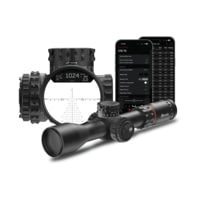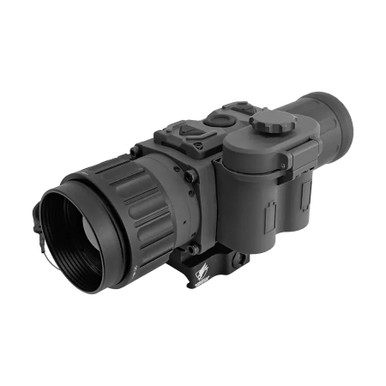I got an interesting question via Youtube after the last livestream. Here is it is verbatim:
"Ilya I hope you read the comments. I’ve got an optics question that I can’t seem to find an answer to.
In reference to competition style scopes. Ones that seem geared towards PRS or other similar styles of shooting. Is there some good reason that the manufacturers constantly put out stuff with a low end mag that is basically unusable? Weight? Clarity? Something else?
I’m thinking of things like the K540i, Vortex 6-36, Tangent, Zco. I’ve never seen anyone shoot these scopes below 10x and most of their reticles are completely unreadable at low magnification. Why not start the low end at something like 10x or 12x and use a similar or lower zoom ratio? A 10-30 seems much more useful in PRS compared to a 5-25 since it’s my understanding that a lower zoom ratio is easier to make."
The biggest reason is simply marketing. People who actually compete are a relatively small minority. They do not really need low magnification. Most people who spend money on scopes are looking at specs and a large magnification ratio is more marketable. There are of course other practical reasons too.
When you design a riflescope, you are generally trying to hit multiple birds with one stone.
For example, if you want it to appeal to some potential military contracts, you need some sort of a viable low magnification to use with clip-ons. Many of the clip-ons available to the military work pretty well on higher magnifications, but they generally want to have low pwoer in the 4x to 7x range.
As far as the reticle not being usable on low power, that is a consequence of making reticle very thin for use on high power. This is also where military applications and civilian competition applications have different needs. More military oriented reticles tend to be slightly thicker and I often prefer those.
However, the simple truth is that reticle illumination pretty much solves that problem nicely since most low power use is in low or fading light.
The extended range features of a reticle (christmas tree, etc) seldom come into play in low light, so if the reticle simply has something like an illuminated cross, it works very well.
For what it is worth, even in daylight, I shoot my Tangents below 10x all the time, though not much belwo 10x. In NRL Hunter matches, for example, since I am pretty new at this and have a hard time finding the plate, I figured out during my very first match that keeping my 7-35x Tangent on 9x, really helps me get behind the rifle quickly and get it stable quickly. As I got a little better at getting into a proper shooting position efficiently, I bumped it up to about 12x. When practicing, I routinely keep magnification low when shooting off of props. When I am not pressed for time and shoot a bit further out, I'll bump up the magnification a little to have a better look at the mirage. However, I virtually never shoot above 20x unless I am screwing around with some very small targets at close ranges (like the 1/4" hanger on the KYL rack) which is mostly done with rimfires and airguns.
Moving on.... a few years ago when I was chatting with a guy who designs riflescopes for a living, I asked him that the ideal magnification ratio is, where you have a good enough magnification range without any really significant optical compromises. He said that it is right around 5x, i.e. 5-25x, 7-35x, etc. When riflescope optical systems are designed, they are not all ground up designs. For example, you can take a well worked out erector system and use it in a range of scopes. LPVOs are a little different, but you can use more or less the same erector and eyepiece for several different designs: 2-12x, 3-18x, 4-24x, 5-30x can have very significant part commonality. Noone is itching to design a standalone 3x erector just for the highest magnification scope because it just adds extra cost and might not offer any advantages beyond potentially slightly lighter scope and somewhat easier assembly/alignment.
The idea of a competition dedicated high power riflescope that is 10-30x or something along those lines comes up every few years as does the concept of a dedicated 14x fully optimized for matches. Every time, it fails the basic test of economics: how much will it cost to develop vs how many you might sell.




















